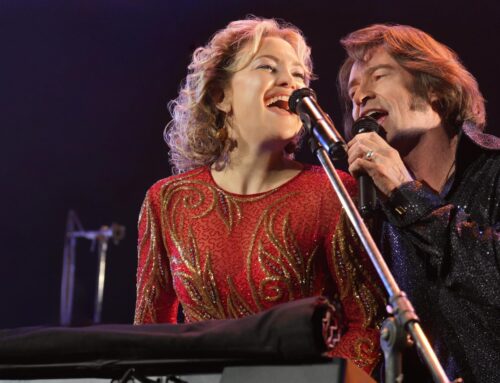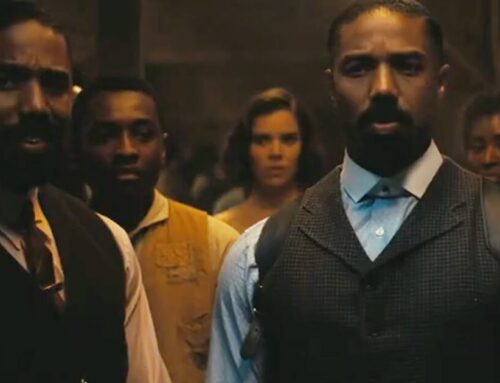I have finally seen THE movie of the summer– and perhaps the year: SUMMER OF SOUL (… Or, When the Revolution Could Not Be Televised). “The Roots” drummer turned filmmaker Questlove has excavated buried treasure and turned it into a divine revelation of a feature documentary. The Harlem Culture Festival took place on 6 nights, over six weekends in the summer of ’69, before a total of 300,000 people, after which the extraordinary footage was locked away in the cameraman’s (Hal Tulchin) basement and virtually disappeared for 50 years– until now.
Like so much black history buried by a white culture that just did not acknowledge it, this seismic event, which took place about 100 miles from Woodstock, is finally seeing the light of day. The first few minutes of the film pull us right in with a little exposition and none other than Stevie Wonder who kicks off a pantheon of performers from the Mount Olympus of music. We’re talking all genres: gospel, blues, soul, funk, folk, rock, jazz, latin, morphing into fusions of sound and spoken word, along a continuum of cultures from black to white.
As a drummer, Questlove throws a spotlight on the bedrock of all this music: the beat of the drum, rooted in Africa, a language moving the sea of people there in what is now Marcus Garvey Park, linking performers and audience in conversation– with the help of Puerto Rican and Cuban Percussionists extraordinaire Ray Barretto and Mongo Santamaria–across cultures and time, from then to now, through the universal rhythms we all instantly feel. If ever there were a case to be made for music and the arts as a unifier– this movie is it. It’s pure exhilaration and transcendence.
As each performer takes the stage the momentum builds: the psychedelic soul of The Chambers Brothers; The 5th Dimension in their bell bottoms and fizzy fusion of pop, jazz, blues, and Broadway show tunes; the Temptations David Ruffin solo; pioneering blues icon guitarist B.B. King; The Edwin Hawkins Singers in their robes and “Oh Happy Day” gospel hit; the towering Mahalia Jackson joined by a young Mavis Staples in a cathartic wail rooted in the soul deep pain of being black in America; The “High Priestess of Soul” Nina Simone whose mesmerizing story-telling took the crowd higher and evinced the sadness, dignity, and spiritual power of the people.
“It wasn’t just about the music,” declares Gladys Knight as she looks back at her own performance that day with tears in her eyes. “It was our people lifting us up.” Indeed, the reach of that moment in history and its cry for unity extended to every disenfranchised voiceless people on the planet. The event was utterly galvanized by the climactic performance of the prodigiously-talented “proto Prince” Sly and The Family Stone, whose boundary-obliterating band had a white drummer and trumpet-blowing women. That performance embodied the radical, joyous, revolutionary notion that we were all more powerful and better together than apart.
The festival itself was a miracle of organization pulled off by fast-on-his-feet promoter Tony Lawrence who managed to get various sponsors and the City of NY on board, with its tall, blond, white mayor John V. Lindsay onstage and the Black Panthers working security on the ground to deliver a FREE concert on a shoestring; the stage had to face west because there was no lighting! It was free in every sense– a liberating, soul-baring, consciousness-raising, declaration of independence and identity, a unification, reclamation, revelation, exultation, and concatenation of sound, soul and spiritual uplift.
The film is ingeniously constructed to release the cumulative power of this event and its many layers of significance. We are watching this archival footage along with several of the performers who were there but who, like Gladys Knight and the 5th Dimension’s Marilyn McCoo are seeing this in perspective now for the first time. It’s that fullness of historical hindsight which gives the film its ultimate potency. There’s footage of Jesse Jackson rallying the crowd against the backdrop of MLK’s assassination; journalist and actress Charlayne Hunter-Gault, musicians Sheila E., Lin-Manuel Miranda and Chris Rock weigh in between archival footage of Moms Mabley and Redd Foxx. The coolest commentator of all, writer musician Greg Tate declares the festival “an eruption of spirit through being completely and expressively open…a release… a catharsis through music.”
The film leaves us with goosebumps as we hear from someone who was a little boy in the audience that day, one Musa Jackson who is seen watching now as a grown man, reconnecting with all the feelings he felt in 1969, when he says he saw more black people in one place that he had ever seen before. “That concert took my life from black and white into color.” Jackson almost gasps, “How beautiful it was!” Indeed, the resurrection of this footage now is inescapably poignant, a reclamation of a something lost with its unfulfilled promise, and how beautiful it still might be…
MUST SEE Searchlight Pictures “Summer of Soul (…Or, When the Revolution Could Not Be Televised) Now in Theaters!






Leave A Comment
You must be logged in to post a comment.